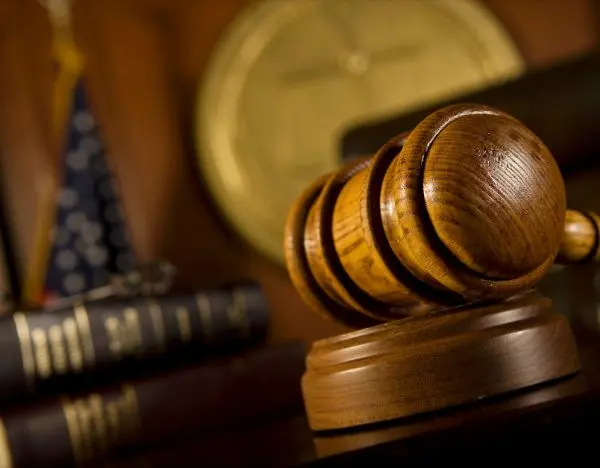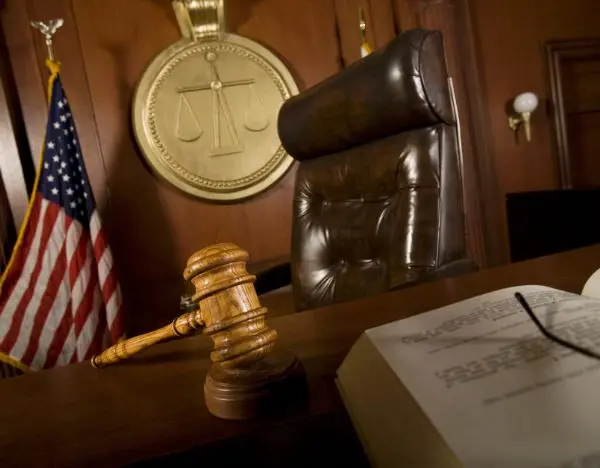
Facing an indictment can be a daunting and confusing experience, especially if you are unfamiliar with the legal process. Understanding what happens after an indictment is crucial for preparing your defense and knowing what to expect in the coming weeks and months. At Varghese & Associates, P.C., we are committed to providing clear and supportive guidance to help you navigate this challenging time.

An indictment is a formal accusation that charges an individual with a criminal offense. A grand jury issues it after determining enough evidence to proceed with a criminal trial. An indictment does not mean you are guilty; it simply means there is probable cause to believe you committed a crime.
A grand jury is a group of citizens who review evidence presented by the prosecution to decide if there is probable cause to charge someone with a crime. Unlike a trial jury, which decides guilt or innocence, a grand jury only decides if the case should proceed to trial.
The grand jury’s primary role is determining whether sufficient evidence exists to indict a person. This decision is based on the standard of probable cause, which is lower than the standard of proof required for a conviction.
The grand jury process is usually one-sided, with only the prosecution presenting evidence. In rare cases, the defense may request to present evidence or have the accused testify, which must be handled carefully.
Facing an indictment in New York can be a daunting experience, especially if you are unfamiliar with the legal process. An indictment is a formal accusation that initiates a criminal case, and understanding what happens next is crucial for preparing your defense. Here’s a detailed guide on the steps that follow an indictment in New York.
After an indictment, the first major step is the arraignment. During this court appearance, the charges against you will be formally read, and you will be asked to enter a plea (guilty, not guilty, or no contest). It is essential to have legal representation at this stage to ensure your rights are protected and to provide guidance on how to plead.
In some cases, a bail hearing may follow the arraignment. The court will decide whether you will be released on bail or held in custody while awaiting trial. Factors considered include the severity of the charges, your criminal history, and your ties to the community. A criminal defense attorney can argue for reasonable bail terms or for your release on your own recognizance.
The discovery phase involves the exchange of information and evidence between the prosecution and the defense. This phase is critical for building your defense strategy and may include:
Your criminal defense attorney will review all the evidence provided by the prosecution and may conduct an independent investigation to gather additional evidence that supports your defense.
Before the trial begins, your attorney may file several pre-trial motions to influence how the trial proceeds. These can include:
Pre-trial motions can significantly impact the course of your trial and are a crucial aspect of the defense strategy.
In many cases, the defense and prosecution may engage in plea bargaining. This is a negotiation process where the defendant may agree to plead guilty to a lesser charge or receive a reduced sentence in exchange for avoiding a trial. Plea bargains can be beneficial for both parties by saving time and resources. Your attorney will advise you on whether accepting a plea deal is in your best interest based on the specifics of your case.
If a plea agreement is not reached, the case will proceed to trial. Trial preparation involves several key steps:
During the trial, both the prosecution and defense will present their cases to the jury. The prosecution must prove beyond a reasonable doubt that you committed the crime. Your defense attorney will challenge the prosecution's evidence, present your case, and work to create reasonable doubt in the minds of the jurors.
After both sides have presented their cases and made their closing arguments, the jury will deliberate and reach a verdict. If the jury finds you not guilty, you will be acquitted of the charges. If the jury finds you guilty, the case will proceed to sentencing.
If you are convicted, a sentencing hearing will be scheduled. During this hearing, the judge will determine the appropriate penalty based on the severity of the offense, your criminal history, and other relevant factors. Your attorney will advocate for a fair and just sentence, presenting any mitigating circumstances that may warrant leniency.
You can appeal the decision if you are convicted and believe that errors were made during the trial. An appeal is a request for a higher court to review the case and determine if legal mistakes affected the outcome. Your criminal defense attorney can help you decide if an appeal is appropriate and guide you through the appellate process.
Being under investigation can be a stressful experience, especially if you're unsure whether you might be facing an indictment. In New York, understanding the signs that you may be the subject of a grand jury investigation can help you take proactive steps to protect your rights. Here are some key indicators that you may be facing an indictment.
One of the first signs that you may be under investigation is contact from law enforcement officers. This can include:
Receiving a subpoena is a strong indicator that you are involved in a criminal investigation. Subpoenas can require you to:
If you receive a summons to appear before a grand jury, it’s a clear sign that you are part of an investigation. The grand jury is responsible for determining whether there is sufficient evidence to charge you with a crime.
Law enforcement may interview your friends, family, coworkers, or business associates. If people close to you are being questioned about your activities, it’s a sign that you may be the target of an investigation.
Noticing increased surveillance or suspecting that you are being watched can indicate that law enforcement is gathering evidence against you. This can include:
If law enforcement advises you to get a lawyer or you are contacted by an attorney representing witnesses, it may be a sign that an indictment is forthcoming. It’s crucial to secure your own legal representation immediately.
Hearing through the grapevine that you are being investigated can be another warning sign. While less concrete, rumors or tips from reliable sources shouldn’t be ignored.
A target letter from the prosecutor’s office explicitly states that you are a target of a grand jury investigation. This is a direct indication that an indictment is likely.
Facing an indictment can be overwhelming and intimidating. An indictment means that a grand jury has found sufficient evidence to charge you with a crime, and the legal battle ahead can be complex. Knowing the steps immediately after being indicted is crucial for protecting your rights and building a strong defense. Here’s a guide on what to do if you have been indicted.
The first and most important step is to contact a criminal defense attorney as soon as possible. Legal representation is critical to navigating the complexities of the criminal justice system. An experienced attorney will:
Varghese & Associates, P.C. is here to provide the legal support you need during this challenging time.
Make sure you fully understand the charges against you. Your attorney will help explain the indictment and the specific allegations. This knowledge is crucial for developing a defense strategy and preparing for court proceedings.
It is imperative to attend all scheduled court appearances. Missing a court date can result in additional charges and a warrant for your arrest. Your attorney will inform you of the dates and ensure you are prepared for each appearance.
Avoid making any statements to law enforcement officials without your attorney present. Anything you say can be used against you in court. Your attorney will guide you on handling interactions with law enforcement to protect your interests.
Work with your attorney to gather any evidence and identify potential witnesses who can support your defense. This can include:
An arraignment is a court hearing where the charges against you are formally read, and you enter a plea (guilty, not guilty, or no contest). Your attorney will prepare you for this hearing and advise you on the best plea to enter based on your case’s circumstances.
If you are detained, discuss bail options with your attorney. They can argue for your release on bail, which allows you to remain free while awaiting trial. Factors influencing bail include the severity of the charges, your criminal history, and your ties to the community.
Stay actively involved in your defense. Regularly communicate with your attorney, stay informed about the progress of your case, and follow their advice closely. Your cooperation and engagement are vital to the success of your defense.
Be cautious about discussing your case with anyone other than your attorney. Public comments or conversations about your case can inadvertently harm your defense. Maintain privacy and let your attorney handle communications about your case.
Your attorney’s advice is based on their experience and understanding of the law. Follow their recommendations carefully, whether about court appearances, statements to law enforcement, or how to behave during the trial process.
If you have been indicted, acting quickly and securing experienced legal representation is crucial. At Varghese & Associates, P.C., we are dedicated to defending your rights and guiding you through the legal process. Contact us today for a consultation, and let us help you build a strong defense. Don't face this challenge alone—reach out to us now.
Attorney Advertising | Prior results do not guarantee a similar outcome. The information on this website is for general information purposes only. Nothing on this site should be taken as legal advice for any individual case or situation. This information is not intended to create, and receipt or viewing does not constitute, an attorney-client relationship. This site is protected by reCAPTCHA and the Google Privacy Policy and Terms of Service apply.